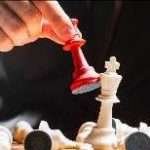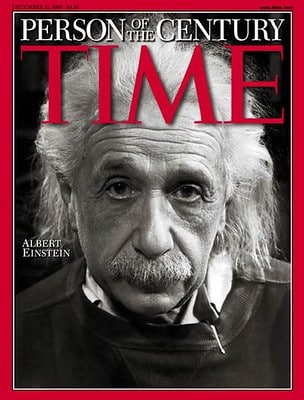“Power tends to corrupt, and absolute power corrupts absolutely. Great men are almost always bad men…”—Lord Acton.
Matthew 5:5 within the Holy Bible says that the meek shall inherit the earth.
And it was the late oil tycoon J. Paul Getty who reportedly said, “The meek shall inherit the earth, but not the mineral rights.”
Mr. Getty’s statement is closer to the reality of contemporary society.
Regardless of what individuals profess, nice guys still finish last in a selfish, power-driven society.
So, if the meek did inherit the earth, how would it look?
One can only guess that it would not be long before influential people with evil intentions would take back power.
And the meek would cry out, hoping for a powerful, metaphysical force to intercede on their behalf.
Consistently, the meek (read “The weak”) look for external forces to save them from marauders and those geared toward usurping their power.
Life has taught me that the cavalry rarely comes and whatever befalls you, you are responsible for determining a course of action to counteract impending doom—real or imagined.
In other words, you must be the judge, jury, and executioner in critical matters.
And in doing this, you must transform your mind to come to terms with this harsh reality.
Sometimes physical, but mostly psychological.

As strategists and masterminds, INTJs are best suited to battle the forces of evil in society.
The Merriam-Webster dictionary defines Evil as “Morally reprehensible; something that brings sorrow, distress, or calamity.”
To add another layer to this definition, evil is any action circumvents a society’s intellectual and progressive well-being for selfish or financial gain.
Because many people with evil intentions are cunning and diabolical, counterinsurgency requires a high degree of cunning and intellect to overcome this adversity.
Like many people, anxiety and nervous energy that characterize INTJs often serve as a means for deliberate action.
Many INTJs attempt to stay under the radar of publicity, outlandishness, and conflict.
But once wrongdoers have gone too far in any direction, INTJs find wicked ways to restore peace.
As an INTJ, I have five confessions about how I live, thrive, and survive within a selfish and power-driven society, which are:
When achieving an objective, I have blinders on.
Many people regale in the ability to multitask or juggle several tasks simultaneously. I have no such aims or skills. When I put my mind to achieving an objective, my only purpose is to accomplish optimal results.
There is no distracting or dissuading me when I am in this mode.
The downside is that I have blind spots that I often can’t see.
To offset this shortcoming, I may overprepare with hopes that I have covered all of my bases sufficiently.
My mind never shuts off.
Aligned with blinders, my mind never stops focusing and thinking about the problem. This often makes sleeping difficult.
The problem I am attempting to solve creeps into my unconsciousness, causing me to dream about it. Often when I awake, a solution has emerged.
And when it relates to revenge, I look for ways to wreak legal and surreptitious havoc.
It is unwise to show your hand or express your thoughts openly when repaying someone for violating your moral code.
Revenge is best executed in the dark, as well as quietly.
I look out for my self-interest first but try to create mutual benefits.
Richard Dawkins argued in his book, “The Selfish Gene” that if one expected to build a society where individuals are generous and selfless, don’t count on biological hardwiring. As humans, we are programmed to be selfish.
Carl Jung, the founder of analytical psychology, said no one could live out all the moral values within a society because individuals adopt some while rejecting others.
Jung distinguished our persona versus our shadow. Our persona is how we want to be seen by the world. Our shadow is what we least want to be or desire the world to see.
Jung advocated living out both realities instead of adopting a specific set of virtues.
I found Dawkins’ and Jung’s ideologies comforting in developing a life free of remorse and regret.
I am a human-computer.
I am consistently absorbing information through books, videos, and documentaries. If I were the only inhabitant on an island for a year, I would only need food, clothing, books, and an internet connection.
Contrary to introverts who desire to live in total isolation with their thoughts and ideas, I would need the ability to publish my ideas through digital books, blogs, or online position papers.
Documenting and building a body of work is the most significant contribution INTJs can make to the world. We may not seek overt popularity, but we desire to live a life where our ideas can transform and serve a greater good.
This is our superpower.
Often, this need is how we replicate ourselves in place of biological procreation.
I believe in transactional relationships over close connections.
Intellectualism is my religion, and life has shown me that self-love is the only unconditional love that exists (in its purest form).
All other forms of love have come with some degree of conditions attached.
Contrary to popular belief, such notions do not have the dystopic reality that may often be attributed to them.
If someone feels valued by a generous act, it does not mean self-interest was not attached to it.
Revisiting The Selfish Gene, people rarely perform acts against self-interest or misaligned with their objectives.

It’s nice to receive random acts of kindness, but exchanging goods and services dispassionately lends itself to relational connections based on mutually beneficial interests.
Emotions have little to do with it. Consistency is most important.
Additionally, you are parceling your energy and power based on the situation’s needs.
You are less likely to be taken advantage of or robbed of your power when you approach life as you approach your financial investments—giving in exchange for a return on your investment.
Not only do you prosper in your financial life, but all the other aspects tend to be overlooked.
Lord Acton’s dictum, “Power tends to corrupt, and absolute power corrupts absolutely…” has stood the test of time.
Take this cautionary note for those who will find themselves in power.
Life’s journey requires that you reconcile your higher angels with your dark side.
For INTJs, this is your ultimate challenge.
—Jake Rivers

References
Acton, J. (n.d.). Wikipedia.org. Retrieved from: https://bit.ly/3zMMfvE.
Bobroff, G. (2020). Carl Jung: Knowledge in a nutshell. London, England: Sirius Publishing.
Chapman, J., and Chapman, D. (2007). The meek shall inherit the earth but not the mineral rights. CASS Sculpture Foundation. Retrieved from: https://bit.ly/3pcFyOk.


